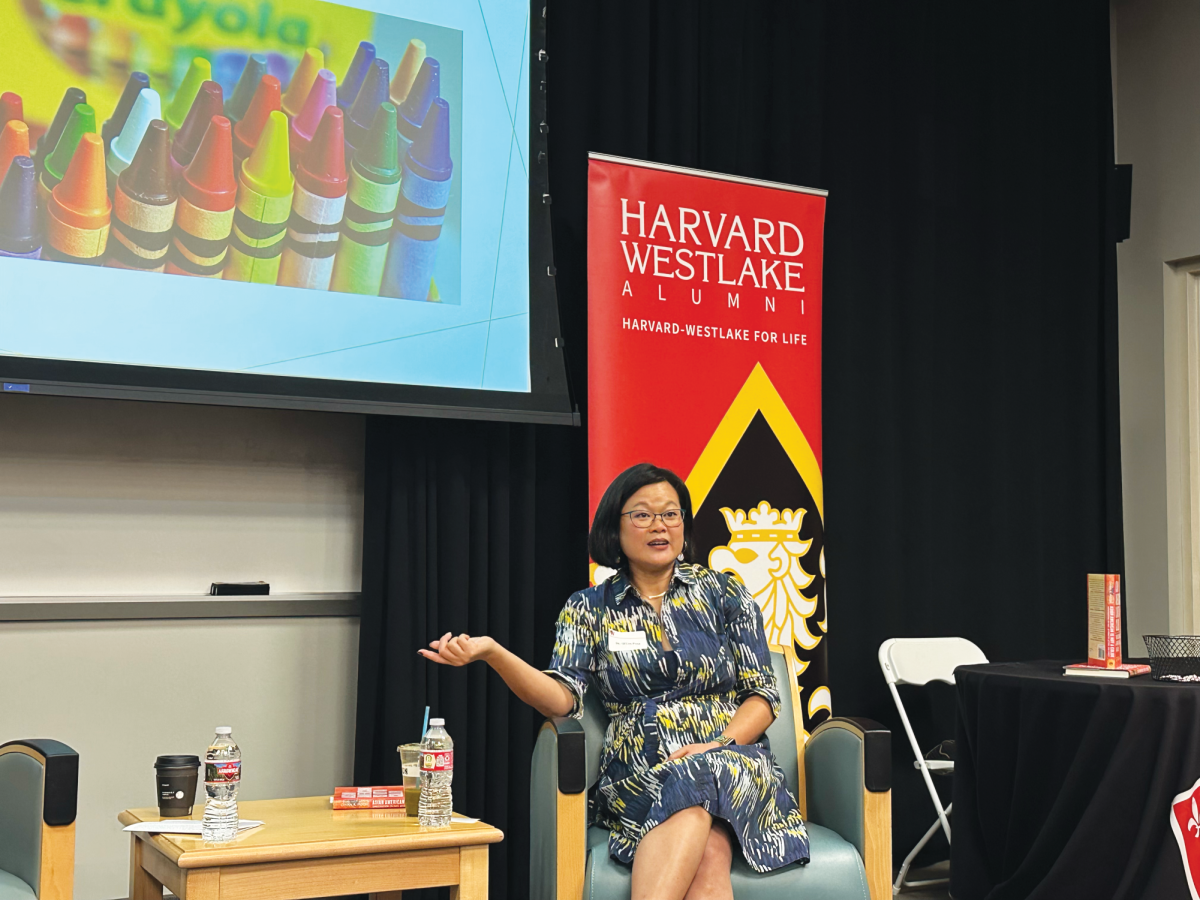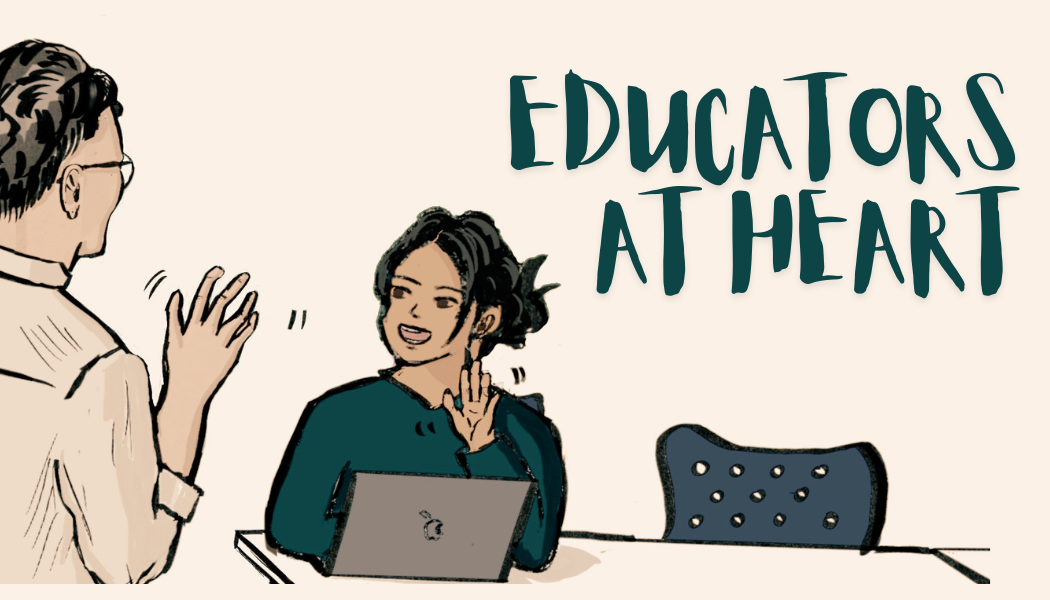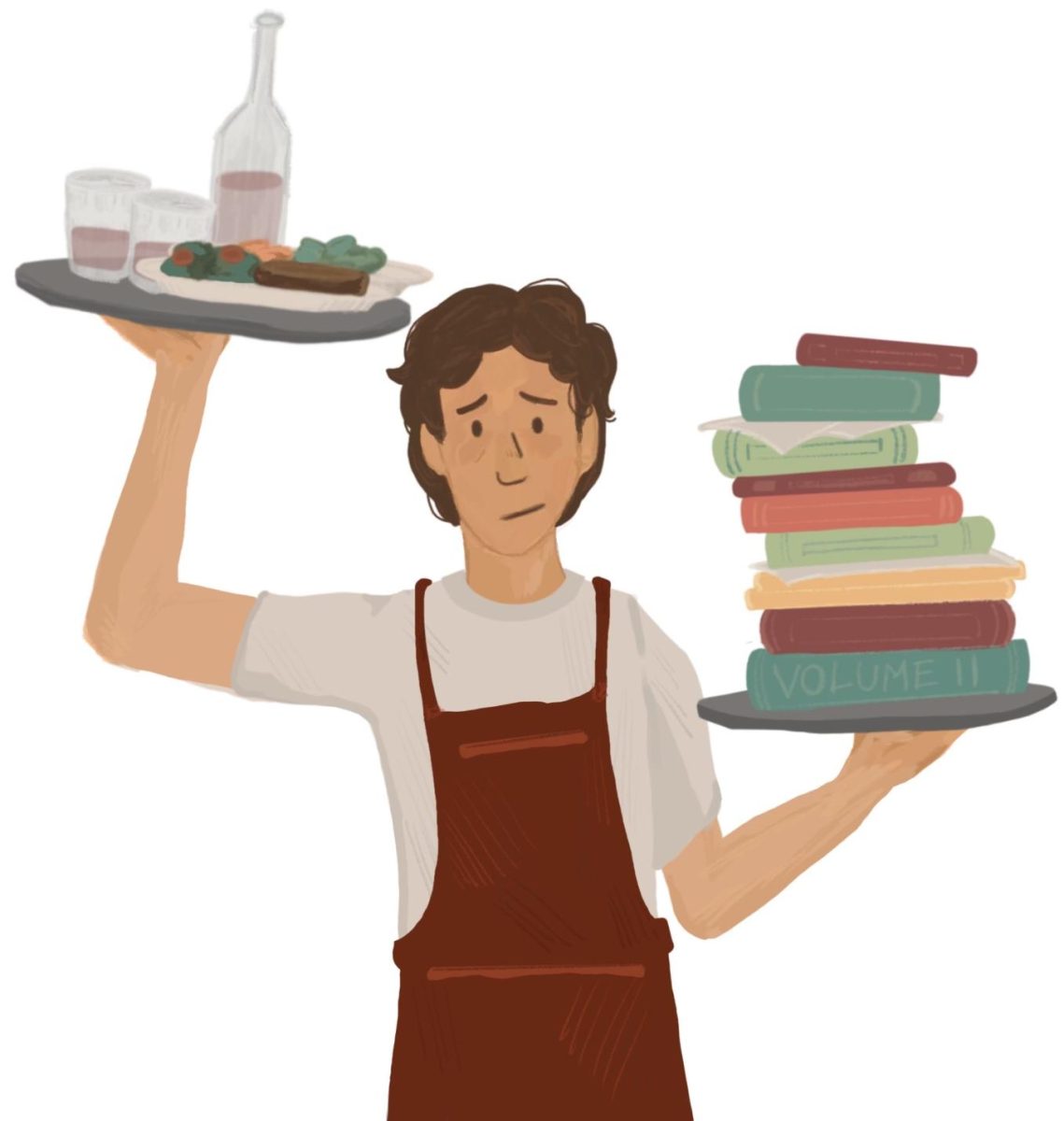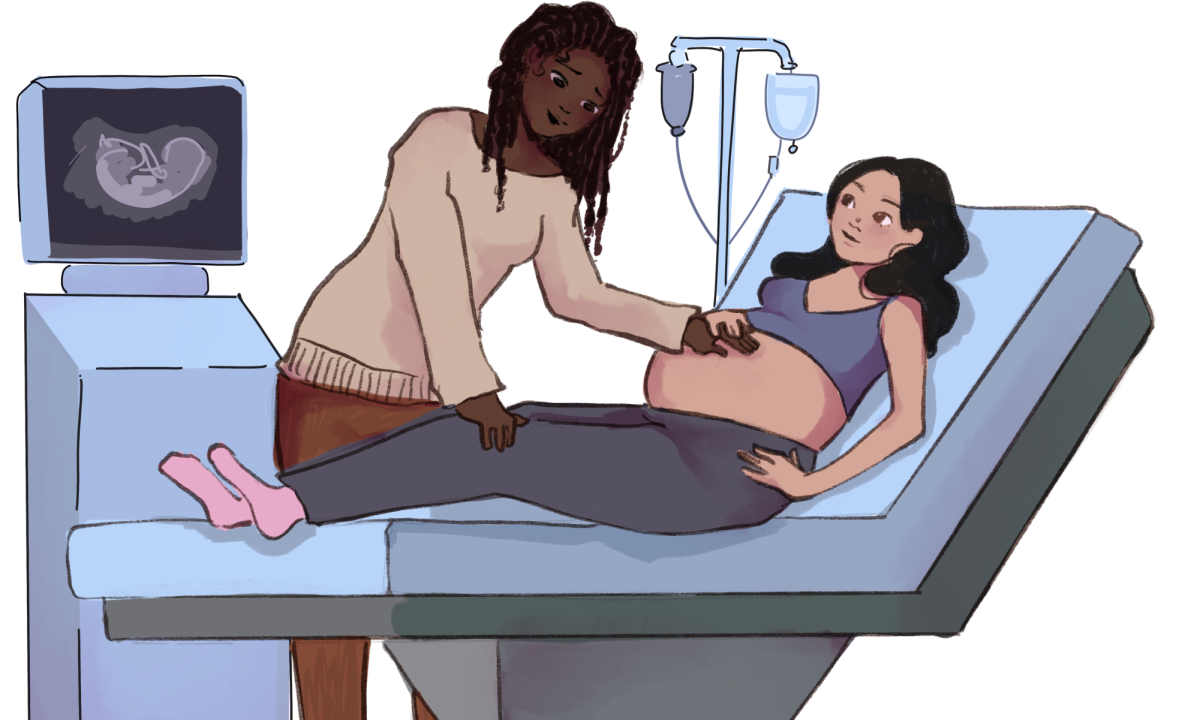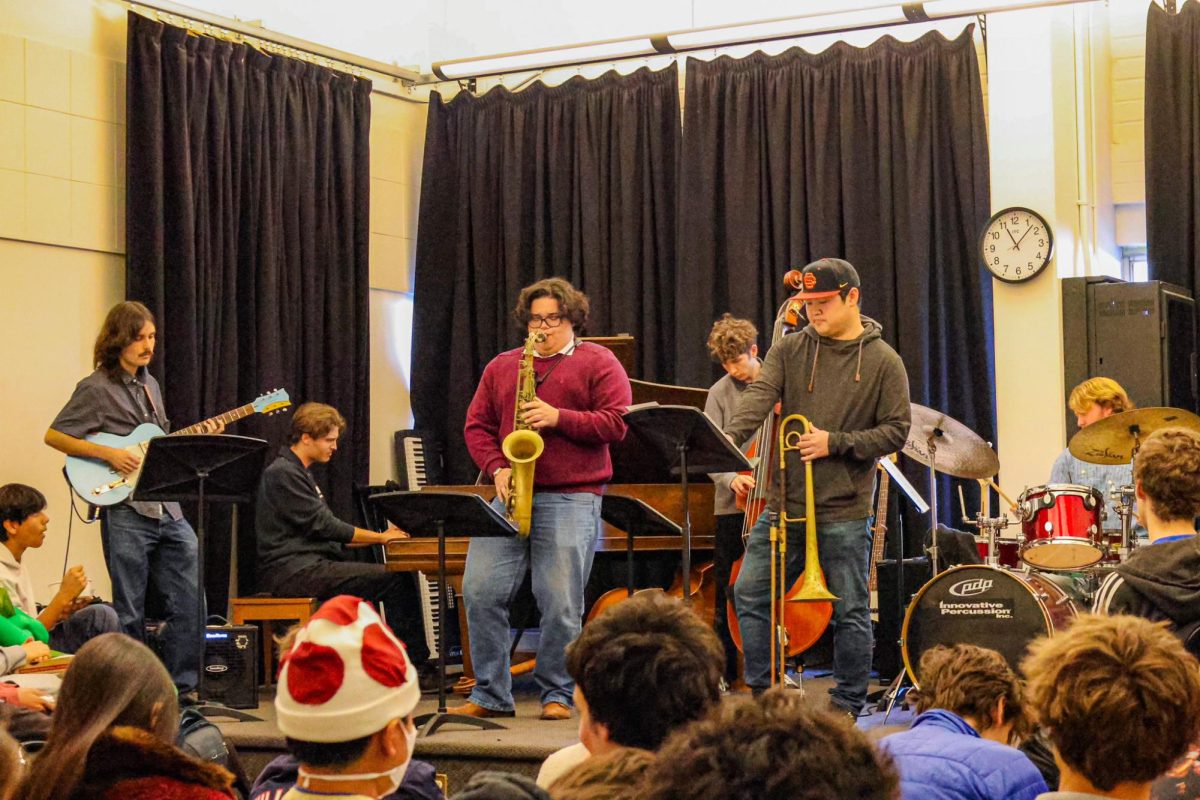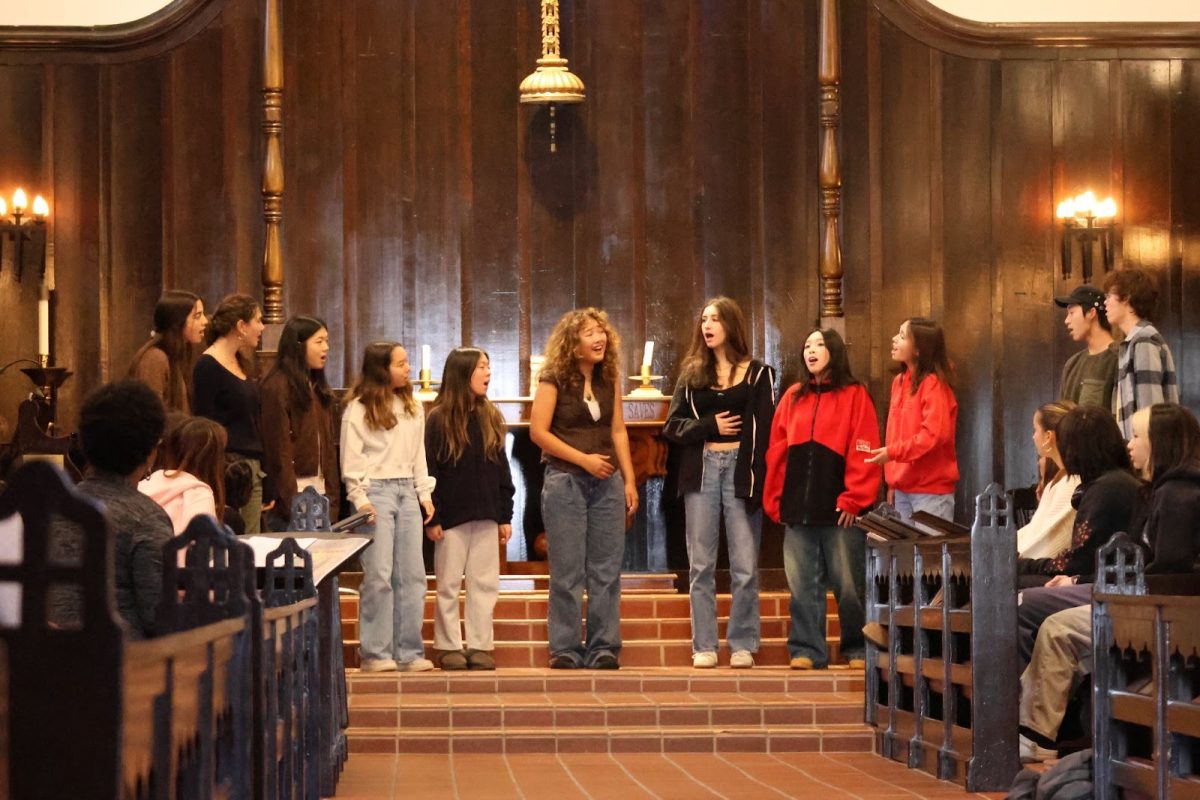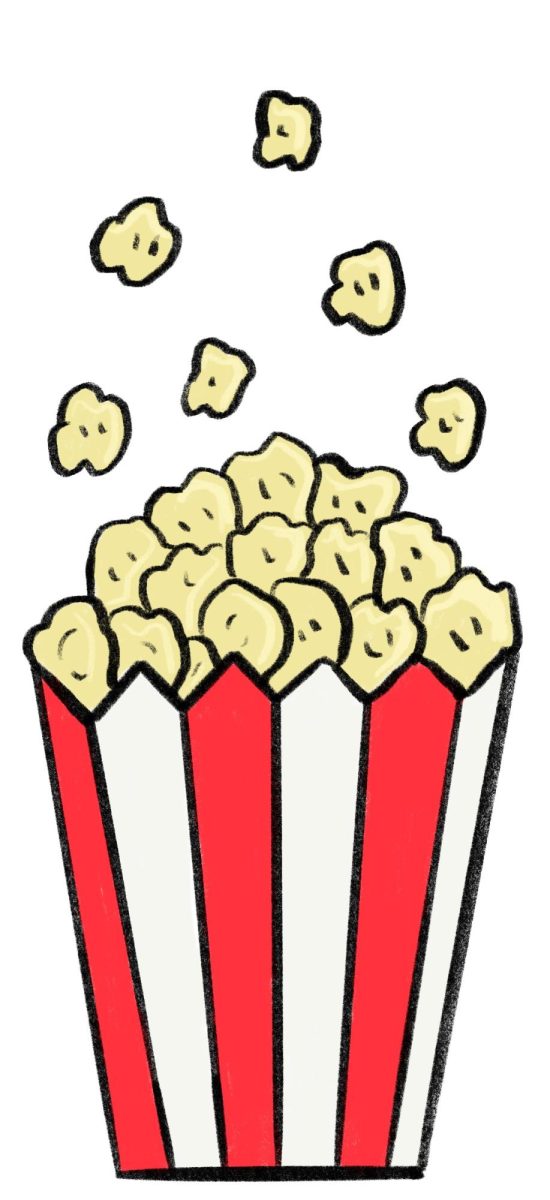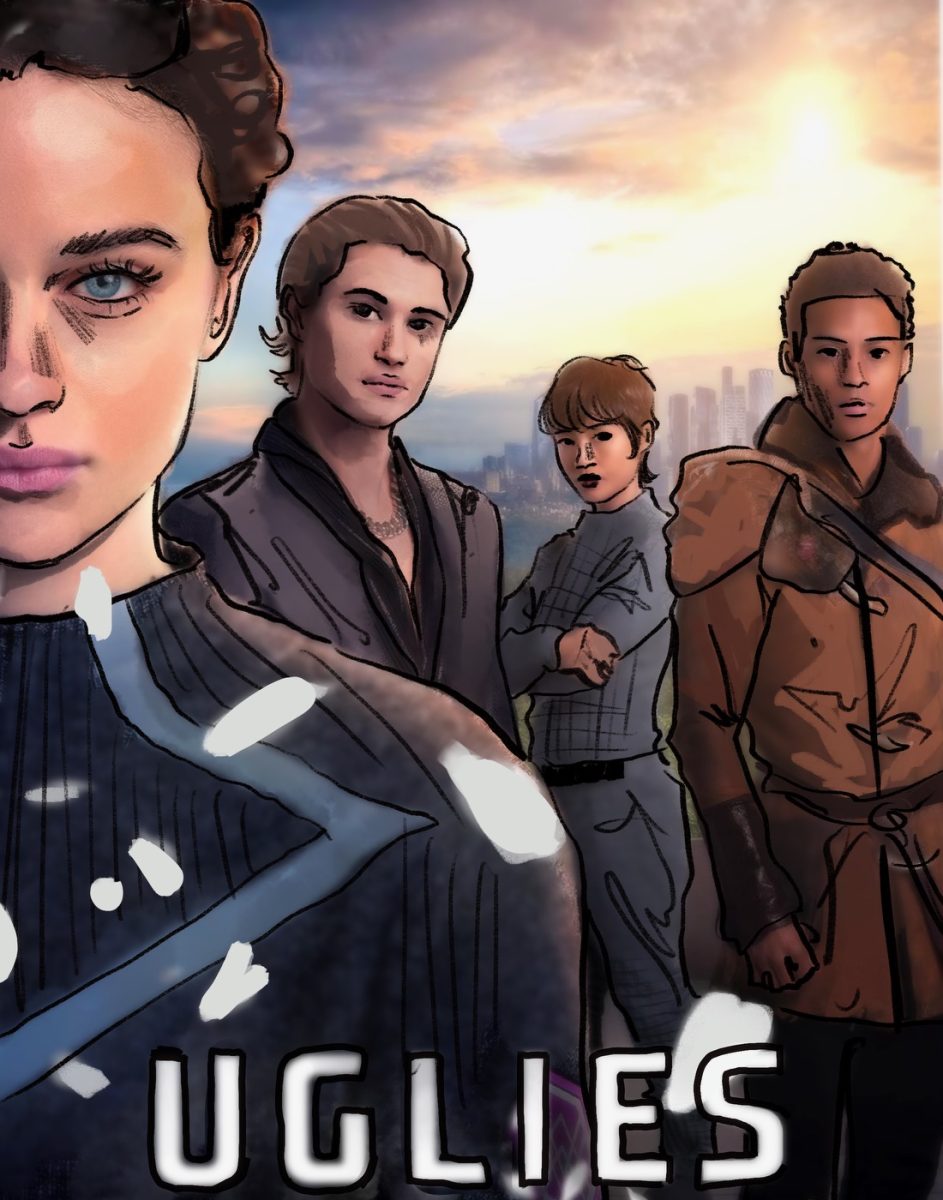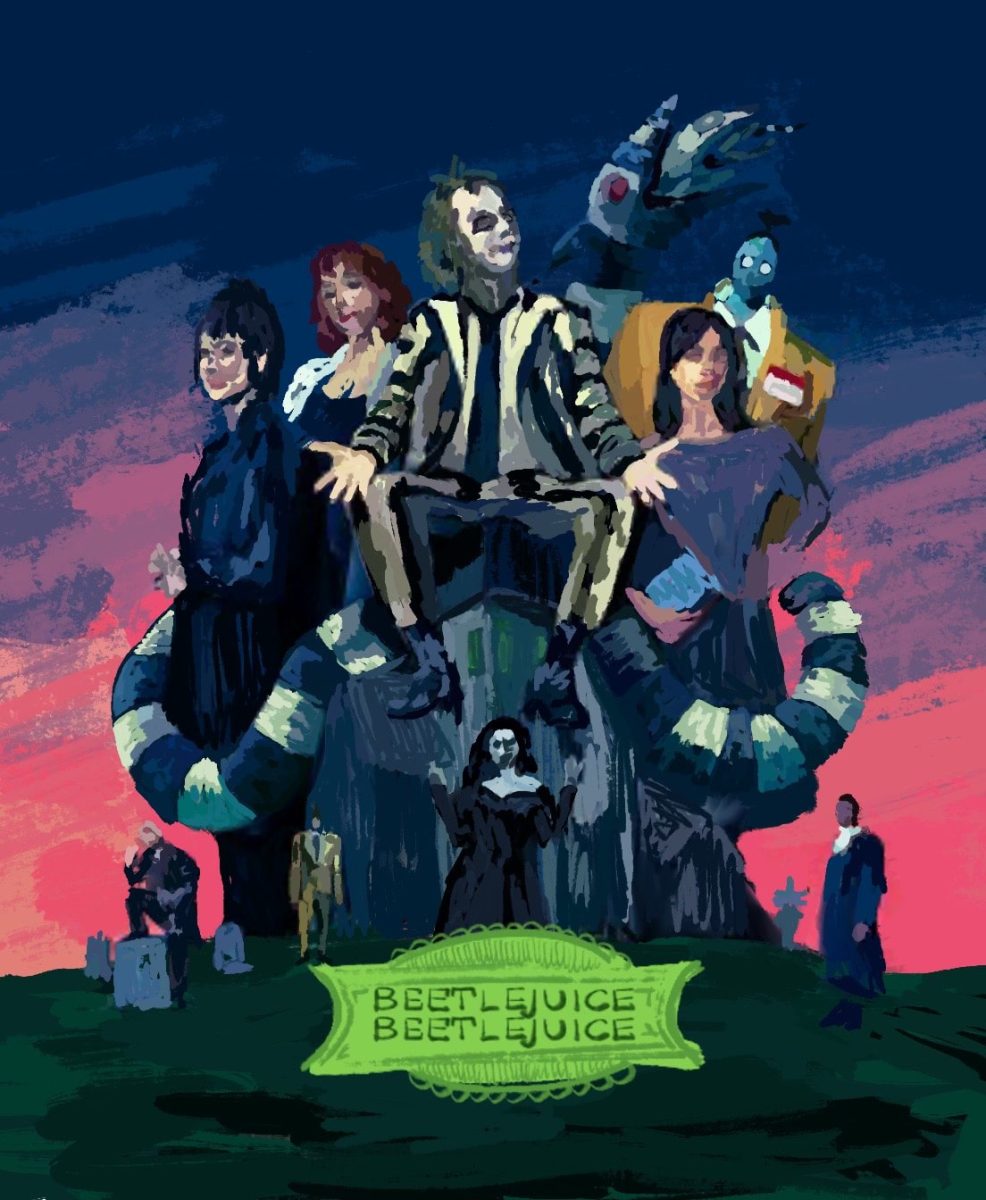“Big Mouth” Speaks Volumes About Adolescence
Netflix releases season four of “Big Mouth.”
March 16, 2021
As Jessi enters the water to swim at summer camp, her pad sucks up all of the water in the lake and turns into a destructive monstrosity. To make matters worse, all of the cool girls at camp chime in to remind Jessi how abnormal she is. Finally, the camp director shouts: “whichever one of you menstruators did this owes me a lake.” The second episode of “Big Mouth,” titled “The Hugest Period Ever,” dramatizes the spectacularly mortifying consequences of Jessi’s decision to wear a pad while swimming at summer camp. It’s an adolescent nightmare magnified to absurd and hysterical proportions, but it’s a relatively normal episode of “Big Mouth.”
The fourth season of “Big Mouth,” an animated television series written by Nick Kroll, Andrew Goldberg, Mark Levin and Jennifer Flackett, arrived on Netflix in early December. The show follows the awkward adventures of several young teenagers as they attempt to navigate the trials and tribulations of growing up. This season of the show has many moments of hysterical humor, but unfortunately, just as many with uncomfortable attempts at being funny that feel like stabs in the dark.
Accompanying the kids each episode are personifications of different emotions through various creatures: an anxiety mosquito, a depression kitty, a shame wizard, a gratitude toad and of course the best of them all, the hormone monsters. The concept seems juvenile, yet it has proven to be an innovative way to portray mental health that gives viewers a different perspective on issues they may be facing. The show allows the audience to take a step back and recognize that most of the time, the issue is just in their head, or perhaps standing as a creature alongside them. It is a playful way to tackle the ups and downs of growing up, discovering identity and navigating relationships with other teens.
The show regularly explores all of these identifiable challenges using incredibly raunchy humor, but this season pushes boundaries beyond all previous ones. Just as the characters reach their peak stage of awkwardness, the show reaches its own peak of awkwardness with overly-provocative jokes that seem to exist solely for the sake of being provocative. Many of the characters are unnecessarily crude and the moments that left me laughing out loud were usually references to pop culture and not just jokes with “bad words” or sexual situations. Although not as consistently funny and balanced as other seasons have been, the show continues to ingeniously depict the honest struggles of teens in a completely unfiltered and refreshing way.
Each episode of season four dives into a new hectic plot, leaving the main characters as confused and awkward as ever. The show is often over-plotted, and loses its humor when it strays too much from the original premise. There were moments when viewers found themselves asking, “what is going on?” This is seen on multiple occasions, specifically in the last episode where the viewers encountered a fight inside the head of one of the character’s alter egos.
Two particularly engaging episodes concentrate on Missy and her identity crisis being mixed race while having been taught mannerisms by her white mother. She visits her two cousins in Atlanta who show her a completely new world, and in “A Very Special 9/11 Episode,” Missy also grows closer to her Black friend Devon, who teaches her about “code-switching” in different circumstances of his life. Missy’s storyline goes into great detail during this season as she slowly starts to develop her own persona and realize who she really is, ultimately concluding that she is not limited to just one identity. Other characters experience similar identity crises: Matthew grapples with the idea of coming out of the closet to his parents, and Natalie, who has recently transitioned, awkwardly tries to navigate the girls’ bunks at summer camp. Despite the racy humor, the writers treat each of these characters’ internal struggles in respectful, informative and accurate ways.
One of the less successful episodes was “Nick Starr,” which felt very inessential in the larger scheme of the show, as though it had been overdone. Nick tends to err on the more bothersome side in the best of times, and so the 30-minute episode featuring his future self as a materialistic gameshow host was particularly unenjoyable. The whole concept may have felt particularly arbitrary to viewers and the execution of the idea is poor. Nevertheless, there are still glimpses of humor throughout, and it sets up several ideas that appear in later episodes.
Season four of “Big Mouth” doesn’t have an ounce of downtime, and is thoroughly engaging to watch. Even though it did not meet the same standard set by prior seasons, many of the moments were nevertheless amusing, if a little cringeworthy.

